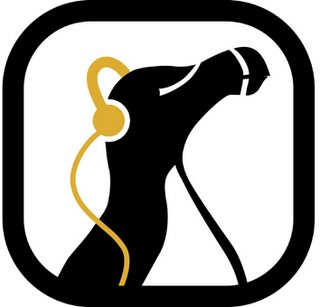 The following excerpt is from Lure of the Labrador Wild by Dillon Wallance. Wallace's account of the failed canoe expedition through the Labrador wilderness that resulted in the death of journalist Leonidas Hubbard was first published in 1905 by Fleming H. Revell, New York. The unabridged audio edition is narrated by Jody Richardson and is available from Rattling Books.
The following excerpt is from Lure of the Labrador Wild by Dillon Wallance. Wallace's account of the failed canoe expedition through the Labrador wilderness that resulted in the death of journalist Leonidas Hubbard was first published in 1905 by Fleming H. Revell, New York. The unabridged audio edition is narrated by Jody Richardson and is available from Rattling Books.I. The Object of the Expedition
"How would you like to go to Labrador, Wallace?" It was a snowy night in late November, 1901, that my friend, Leonidas Hubbard, Jr., asked me this question. All day he and I had been tramping through the snow among the Shawangunk Mountains in southern New York, and when the shades of evening fell we had built a lean-to of boughs to shelter us from the storm. Now that we had eaten our supper of bread and bacon, washed down with tea, we lay before our roaring campfire, luxuriating in its glow and warmth.
Hubbard's question was put to me so abruptly that it rather startled me.
"Labrador!" I exclaimed. "Now where in the world is Labrador?"
Of course I knew it was somewhere in the north-eastern part of the continent; but so many years had passed since I laid away my old school geography that its exact situation had escaped my memory, and the only other knowledge I had retained of the country was a confused sense of its being a sort of Arctic wilderness. Hubbard proceeded to enlighten me, by tracing with his pencil, on the fly-leaf of his notebook, an outline map of the peninsula.
"Very interesting," I commented. "But why do you wish to go there?"
"Man," he replied, "don't you realise it's about the only part of the continent that hasn't been explored? As a matter of fact, there isn't much more known of the interior of Labrador now than when Cabot discovered the coast more than four hundred years ago."
He jumped up to throw more wood on the fire. "Think of it, Wallace!" he went on, "A great unknown land right near home, as wild and primitive to-day as it has always been! I want to see it. I want to get into a really wild country and have some of the experiences of the old fellows who explored and opened up the country where we are now."
Resuming his place by the blazing logs, Hubbard unfolded to me his plan, then vague and in the rough, of exploring a part of the unknown eastern end of the peninsula. Of trips such as this he had been dreaming since childhood. When a mere boy on his father's farm in Michigan, he had lain for hours out under the trees in the orchard poring over a map of Canada and making imaginary journeys into the unexplored. Boone and Crockett were his heroes, and sometimes he was so affected by the tales of their adventures that he must needs himself steal away to the woods and camp out for two or three days.
It was at this period that he resolved to head some day an exploring expedition of his own, and this resolution he forgot neither while a student nor while serving as a newspaper man in Detroit and New York. At length, through a connection he made with a magazine devoted to out-of-door life, he was able to make several long trips into the wild. Among other places, he visited the Hudson Bay region, and once penetrated to the winter hunting ground of the Mountaineer Indians, north of Lake St. John, in southern Labrador. These trips, however, failed to satisfy him; his ambition was to reach a region where no white man had preceded him. Now, at the age of twenty-nine, he believed that his ambition was about to be realised.
"It's always the way, Wallace," he said; "when a fellow starts on along trail, he's never willing to quit. It'll be the same with you if you go with me to Labrador. You'll say each trip will be thelast, but when you come home you'll hear the voice of thewilderness calling you to return, and it will lure you away again and again. I thought my Lake St. John trip was something, but while there I stood at the portals of the unknown, and it brought back stronger than ever the old longing to make discoveries, so that now the walls of the city seem to me a prison and I simply must get away."
My friend's enthusiasm was contagious. It had never previouslyoccurred to me to undertake the game of exploration; but, like most American boys, I had had youthful dreams of going into a great wild country, even as my forefathers had gone, and Hubbard's talk brought back the old juvenile love of adventure. That night before we lay down to sleep I said: "Hubbard, I'll go with you." And so the thing was settled--that was how Hubbard's expedition had its birth.
To be continued.
